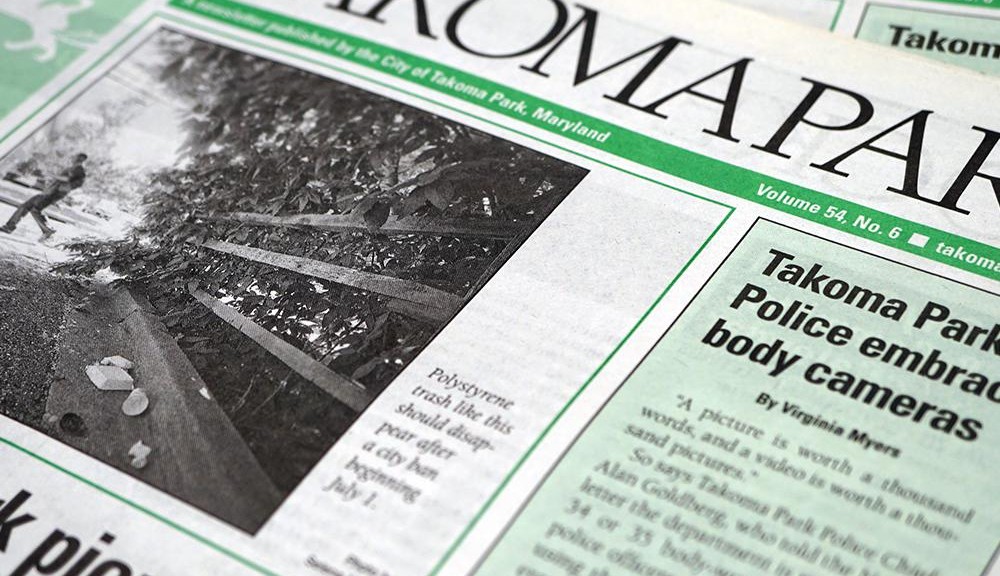Considering a third party candidate for any office in this month’s election? Would you vote for a candidate with a reduced vocabulary, one name and more hair than what you’d find on your Uncle Louie’s back?
Hank, the feline star of Wild about Hank; We’re talking about a cat (What were you thinking?) that ran for the U.S. Senate seat against Tim Kaine and George Allen during the 2012 election in Virginia. Wild about Hank, directed by Emma Kouguell, debuts at the free Community Stories Festival at 7:30 p.m. on Thursday, Nov. 10, at the Takoma Park Community Center, and is one of many films presented by Docs in Progress.
We Are Takoma asked Docs in Progress Executive Director Erica Ginsberg to tell us more about Community Stories Festival and this year’s films. Questions were submitted to her by email, and her answers have been lightly edited for space and grammar.
We Are Takoma: Describe the Community Stories Festival.
Ginsberg: The Community Stories Festival grew out of Docs in Progress wanting to give filmmakers a showcase for their documentaries about local topics. The festival celebrates how documentary film can be used both to reveal untold stories of our local community and also bring that community together.
The festival has been a program of Docs in Progress since 2010. That year, we held a one-night showcase screening in a small auditorium of films produced by adult and youth students in our documentary filmmaking classes. All the topics were local. While we expected their friends and family would show up, what we had not counted on was that we would have a standing room only crowd. What started as a one night festival for 75 people has grown into a multi-day event which, last year, attracted more than 500 people. Since 2013 one of the most popular nights of the festival has taken place at the Takoma Park Community Center, and we expect this year to be no different.
We Are Takoma: How has the festival been received in the community/surrounding area?
Ginsberg: We do year-round screening programs in partnership with We Are Takoma and get a respectable number of engaged Takoma Park residents for those events. However, Community Stories is on a whole other level. It’s no surprise that Takoma Park residents are engaged with the community around them, and this is clear at Community Stories, where many locals attend and engage with the filmmakers, the people in the films and their neighbors.
We Are Takoma: What impact has it had?
Ginsberg: The biggest impact I see is for the filmmakers and those in the films. The films we show at Community Stories may not get distribution because it is really difficult for short films to make their way in the world of film distribution. They may also be pegged as “local interest” films, even when they have universal themes. Therefore, you are unlikely to see these films at the Sundance Film Festival or on Netflix. It is really rewarding to see the filmmakers get a chance to see their films on a big screen with a super-engaged audience.
We Are Takoma: What has been the most memorable moment from the Community Stories Festival for you?
Ginsberg: The Q&A’s are always memorable because they are a chance for the audience to interact with the filmmakers and also some of the people who are in the films. It is exciting to see that “fourth wall” broken, where the people on the screen are there in the flesh. I also love when people learn new things about their own community—interesting people, untold history or a small business that perhaps they did not know about before.
We Are Takoma: What can you tell us about this year’s event?
Ginsberg: While the early years of Community Stories featured only work by our students, since last year, we have opened up submissions to other filmmakers, as long as the topic is local (and, by local, we mean the whole DC Metro area). This year’s festival takes place from November 9-12.
Wednesday, Nov. 9 is the opening night. This will take place at the AFI Silver Theatre in Downtown Silver Spring. The early show (6:30 p.m.) features short documentaries about local topics produced by students in our classes. The late show (8:45 p.m.) is the Maryland premiere of Indivisible, a film about young “Dreamers” fighting to reunite with theirparents, who have been deported for being undocumented immigrants. Both of those screenings are ticketed events (tickets through Docs in Progress.)
Thursday, Nov. 10 takes place at the Takoma Park Community Center with a program of short documentaries. The films take us on a journey from the sorriest bus stop in America to the bike trails of DC. We will meet senior citizens energized by a love of the blues, local artists who find inspiration in unusual places, and a feline politico who decides to run for office. The filmmakers are both emerging filmmakers and seasoned pros. Thanks to a partnership with We Are Takoma, the screening in Takoma Park, will be completely free.
Friday, Nov. 11 features a partner program with the Wheaton Film Festival at Chuck Levin’s Music Center in Wheaton. This will include film screenings and professional development panels for filmmakers or aspiring filmmakers.
Saturday, Nov. 12 is a day to try your own hand at documentary filmmaking. Docs in Progress will be offering two modestly-priced workshops at our space in Downtown Silver Spring – one on how to shoot documentary video using a mobile phone or tablet and the other on the art of the interview. To find out more: www.docsinprogress.org/communitystories.
This article appeared in the November 2016 edition of the Takoma Park Newsletter. The Takoma Park Newsletter is available for download here.

